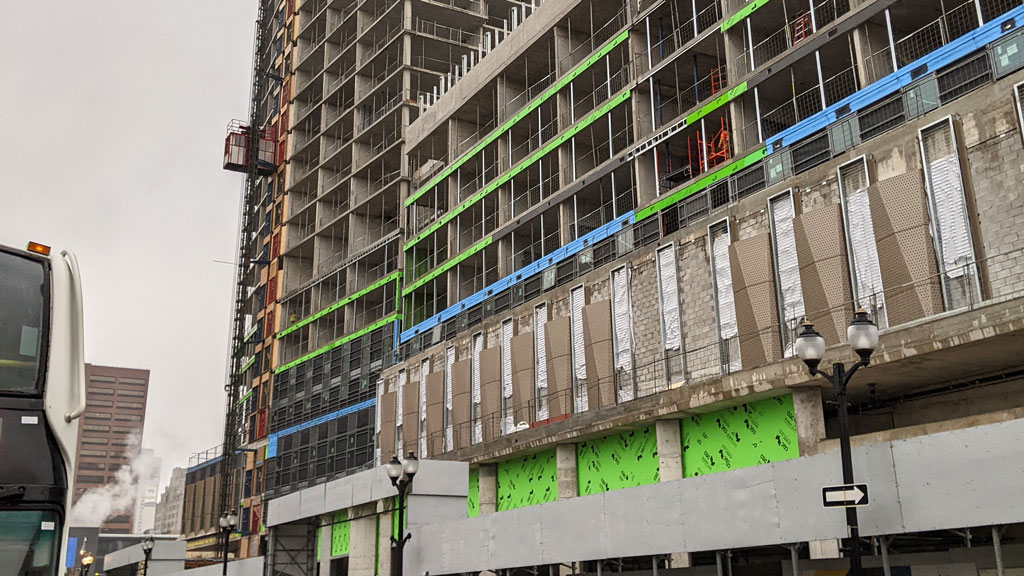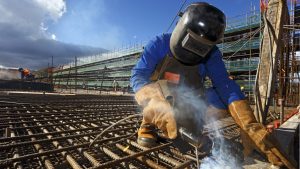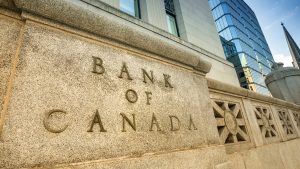The Bank of Canada may have hit the pause button on interest rate hikes after its latest increase in the benchmark rate in January, but Canadian construction and real estate analysts remain uncertain when and whether key sectors will regain the strength they had.
In the U.S., meanwhile, Associated General Contractors of America chief economist Ken Simonson acknowledged the homebuilding sector is weak at present but said there is little concrete evidence that rising interest rates south of the border are the sole reason.
Experts consulted on uncertainty in the construction sector in both countries said there are a variety of factors influencing decisions, with rising interest rates not necessarily the biggest factor at play.
“I have been pleasantly surprised that I have not heard about many construction projects being choked off by the increase in interest rates over the past 15 months,” said Simonson. “Certainly, single-family homebuilding is in steep decline, due to a combination of higher construction and mortgage interest costs.”
“I would describe several other categories as vulnerable: multifamily, office, retail, warehouse and lodging. All of these depend on rising rental or room night income to offset higher construction and financing costs. Some contractors report a number of these projects have been pushed to the right, farther out on a timeline, but not cancelled.”
There is less speculative building now than in the 2000s, Simonson said, and many of the strongest sectors, such as data centres, infrastructure, renewable power and carbon capture projects, are funded by companies that don’t need to borrow to finance them, by government funding, or by tax credits — sources that are less sensitive to rising interest rates than are income-dependent properties.
Canadian analyst David Schoonjans said interest rates are important factors in determining behaviour on both the cost and revenue sides of projects, but other rising costs are also determinants.
“All facets of construction costs have risen significantly over the past several years, so relief on construction costs would go a long way towards making projects financially viable again,” said Schoonjans, senior director, cost and project management with Altus Group.
“At best, we are likely to see construction costs only marginally improve rather than drastically drop.”
On the cost side, Schoonjans said, lower interest rates would mean lower financing costs. On the revenue side, lower interest rates would make mortgages more affordable for purchasers, thus driving sales and revenue.
Schoonjans said many developers are progressing projects through approvals and design knowing that in the current market they likely aren’t viable because of costs. But there is huge latent demand, he said, so when financial conditions improve, they want to have projects ready at the starting line to hit the market as quickly as possible.
“There are a massive number of projects…just waiting for the gun to go off,” said Schoonjans.
In commercial real estate, a variety of factors including high interest rates have significantly derailed the market, said Jeremiah Shamess, senior vice-president with the Colliers private capital investment group.
The impact of rising interest rates on the commercial real estate market was not really felt until around last September, said Shamess.
All lending began to get tight in Toronto and Montreal, with many lenders increasing their lending rates, and property values started to feel downward pressure.
“This dynamic creates a reduction in sales volume, which is exactly what happened,” said Shamess.
Q3 to Q4 2022 saw a drastic change in year-over-year sales volume, he said, noting apartment building sales saw an 89-per-cent decrease in value; industrial was down 74 per cent; residential land fell 61 per cent; and office was down 21 per cent.
“Fear has taken over greed and uncertainty is the theme,” said Shamess.
There is still a large amount of capital on the sidelines, he said. But when the uncertainty starts to recede with a more direct line of sight from the Bank of Canada and the Fed, “we could likely see another bull run,” said Shamess.
“I personally think the market isn’t up for this massive crash that everyone believes is happening,” he said, referring to CRE. “But I do think we are in for one of the most volatile markets that has happened since the ‘70s or the ‘80s.”
Follow the author on Twitter @DonWall_DCN










Recent Comments
comments for this post are closed